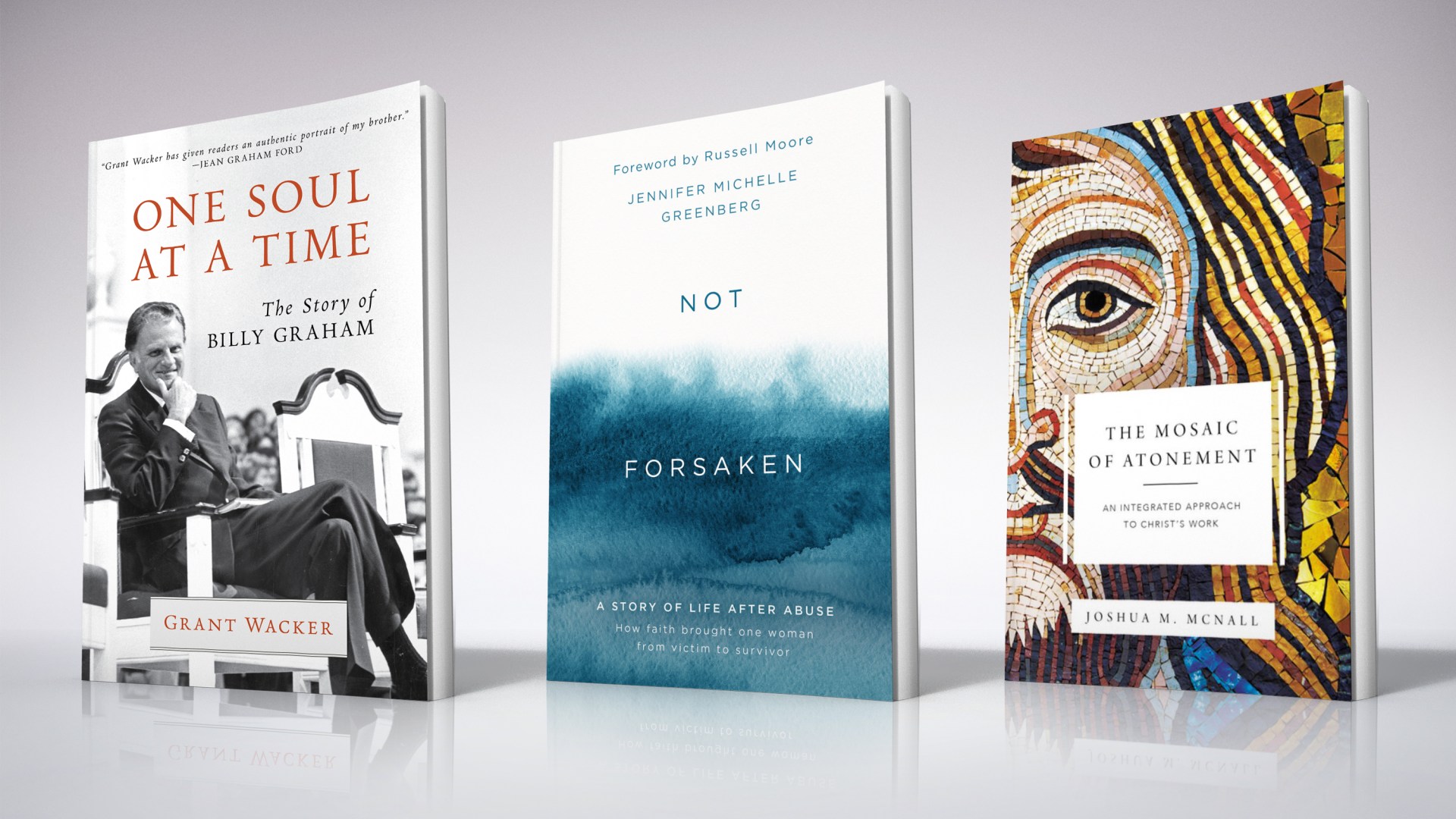One Soul at a Time: The Story of Billy Graham
Grant Wacker (Eerdmans)
Five years ago, historian Grant Wacker came out with America’s Pastor, the definitive study of Billy Graham’s impact on the shape of American Christianity. In One Soul at a Time, a follow-up volume written for Eerdmans’s Library of Religious Biography series, Wacker approaches Graham’s remarkable life from a more personal angle, “try[ing] to tell the story the way I think he would do it,” with an emphasis on the public words and deeds that made the evangelist a household name. Over the course of around 50 brief chapters, we watch Graham’s progression from “Young Barnstormer” to “Leading Evangelist” to “Priestly Prophet” to “Senior Statesman.”
Not Forsaken: A Story of Life After Abuse
Jennifer Michelle Greenberg (The Good Book Company)
To outsiders, Jennifer Greenberg’s father was a model Christian and a student of theology. But Greenberg knew the darker reality of an anger-riddled man who subjected her to physical, emotional, and sexual abuse. Her memoir, Not Forsaken, was originally conceived as a letter to her husband, an attempt to explain the wounds she had suffered. The book, she writes, “is about the journey I traveled through the Valley of the Shadow of Death; the things that guided me; the milestones which helped me process my trauma and recover. . . . But ultimately, this is a story about home, about healing, and about a future beyond our pain.”
The Mosaic of Atonement: An Integrated Approach to Christ’s Work
Joshua M. McNall (Zondervan Academic)
What exactly did Christ accomplish on the cross—and how did he accomplish it? These questions have inspired seemingly endless dispute throughout church history. Surveying the four main atonement theories (that Christ died as a substitute for sinners, that he triumphed over the forces of evil, that he set a moral example of sacrificial love, and that he undid humanity’s fall as a “second Adam”), theologian Joshua McNall steps back from the ongoing debate over which is best. Instead, he argues for fitting them together like tiles in a mosaic, “not just because each one is biblical but because each piece interlocks with the others in particular ways.”










